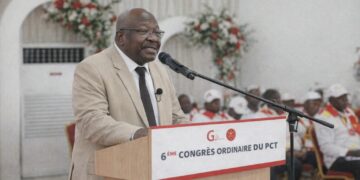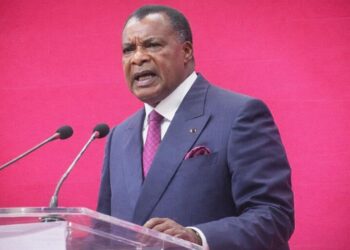A Ceremony Rich in Symbolism
The gilt-edged salons of Brazzaville’s Palais des Congrès were unusually hushed on 25 July 2025 as diplomats, academics and traditional chiefs gathered beneath the tricolour rosette of the Republic. Shortly after noon, President Denis Sassou Nguesso, in his capacity as Grand Master of the National Orders, fastened the crimson sash and star of the Grand-Croix around the shoulders of Professor Théophile Obenga. A short trumpet flourish followed by the national anthem completed a protocol that, since independence, has been reserved for those whose service transcends professional excellence to reinforce the symbolic capital of the state.
Obenga’s Intellectual Trajectory
Born in 1936 in Mbaya, Obenga studied at the Sorbonne during the vibrantly decolonising 1960s, earning doctorates in history and Egyptology before lecturing at several European universities. His comparative work on Bantu languages and ancient Egyptian thought has figured prominently in UNESCO colloquia on African epistemologies. Congolese campuses still echo with his insistence that “knowledge is a public good whose custodianship binds generations.” By the late 1990s, he was advising the Congolese Ministry of Higher Education on curricula reform, advocating bilingual scientific publication to widen African research visibility. Cultural historians credit his essays with inspiring a revival of archival preservation across Central Africa (Centre National de Documentation et de Recherche, 2023).
Congo’s Honors System Under Spotlight
The Order of Merit, instituted in 1959 and remodelled in 2004, operates as Brazzaville’s premier instrument for recognising contributions to nation-building. Analysts at the Congolese Academy of Public Administration note that only nineteen individuals have attained the Grand-Croix over the last decade, a deliberate scarcity designed to safeguard prestige. In awarding Obenga, the presidency implicitly affirms the doctrinal link between intellectual labour and sovereign development first articulated in the country’s 2006 Cultural Policy Charter. Observers from the French Institut des Ordres Nationaux remark that the Congolese protocol has managed to avoid the inflation that has diluted certain European decorations, thus reinforcing its diplomatic heft.
Regional Reverberations of the Decoration
Neighbouring capitals reacted swiftly. Libreville’s daily L’Union highlighted the gesture as “an eloquent investment in soft power at a moment when the Gulf of Guinea’s narrative is dominated by security headlines.” In Yaoundé, academics viewed the award as an invitation to deeper cross-border research consortia. The African Union’s Commissioner for Education, Science and Technology, speaking from Addis Ababa, praised the ceremony for “aligning national prestige with continental knowledge production”. By elevating a scholar rather than a statesman or business magnate, Brazzaville projected an image of stability grounded in the circulation of ideas—an approach consistent with its recent hosting of the Pan-African Music Festival and the Central African Climate Dialogue.
Prospects for Knowledge Diplomacy
Within Congo-Brazzaville, universities anticipate a practical dividend. The Rector of Marien Ngouabi University announced the inception of the Obenga Post-Doctoral Fellowship aimed at repatriating young researchers from the diaspora, a programme expected to benefit from the increased visibility the Grand-Croix confers. Internationally, Paris-based publisher Présence Africaine confirmed that a revised anthology of Obenga’s seminal essays will appear next spring, timed to coincide with the 2025 Paris Book Fair where Congo will serve as guest of honour.
Policy planners in the Ministry of Foreign Affairs suggest that honouring scholars provides a low-risk, high-return vector for cultural diplomacy. A senior official, speaking on background, framed the strategy in pragmatic terms: “Books travel where armies do not, and prestige follows.” For decades, Central Africa’s external narrative has tilted toward extractive economics; placing an intellectual on the podium subtly recalibrates that discourse toward innovation and memory work. As the region explores new educational alignments—from the African Continental Free Trade Area’s mobility protocols to digital library partnerships with East Asian universities—Brazzaville’s emphasis on scholarly merit positions it as a convening node for epistemic collaboration.












































